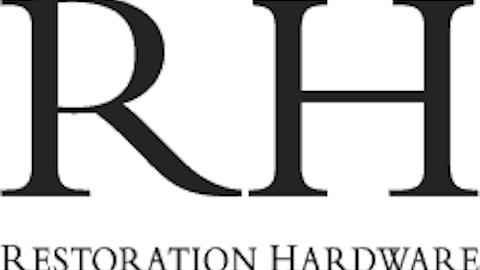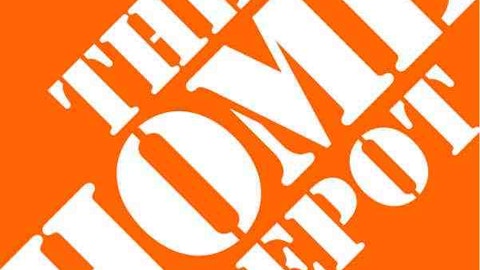Housing is clearly on the mend. In fact, it is finally starting to realize the kind of bounce one would expect following the worst collapse since the Great Depression. For those tempted to be swayed by the increasing description of the current recovery as a bubble, I present the following chart on single-family new home sales.

The easy money has clearly been made on most of the housing related plays, but don’t let this deter you. Investing now provides substantial profit opportunities over the coming decade thanks to depleted supply levels, historical affordability levels, and favorable demographics. But not all housing-related investments are suitable for everyone. So which housing stocks fit your investing style?
Balance sheet kings
The Home Depot, Inc. (NYSE:HD) is the bellwether stock in this category. The home improvement warehouse store has recently been crushing Lowe’s Companies, Inc. (NYSE:LOW) in regards to operational performance. First quarter earnings-per-share jumped 22%, and in addition the fiscal 2013 consensus expectation for earnings-per-share has moved twenty cents higher from the start of the year and now stands at $3.65. This still nets outs to a stretched forward P/E multiple of 21.6, which is the primary risk for the stock at this point. Offsetting this is the company’s high investment grade credit ratings. They have almost $5 billion in cash and generate more than $5 billion in annual free cash flow against just $12 billion in debt.
At first blush, one might not consider Sherwin-Williams Company (NYSE:SHW) to fall in this category. The largest producer of paints and varnishes in North America is really a materials company, despite owning more than 3,500 retail stores. Sherwin-Williams Company (NYSE:SHW) has the same credit rating as The Home Depot, Inc. (NYSE:HD) thanks to very modest debt levels. Debt can be covered with just one year’s free cash flow, and current cash on hand–a sign of a very strong balance sheet.
The stock has gained 120% in just the last two years alone as operating earnings-per-share advanced 34% in 2012. Another 22% gain is expected in 2013, and thus the stock trades at a lofty 23 times forward earnings-per-share. There is a decent chance this multiple permanently compresses, albeit modestly, and total returns trail earnings growth over the next several years. Still, investors should reap annualized double-digit total returns over the next decade in a company with a solid balance sheet and great macro fundamentals.
Home runs with homebuilders
The other end of the spectrum is investing in homebuilding stocks, where earnings go from extreme to extreme. These companies mint money during boom times and take huge losses when housing fundamentals deteriorate. Some housing companies, those that operate in more of a niche role, are extremely volatile and have major bankruptcy risk should a pronounced downturn occur. Even aggressive investors should likely steer their way to the larger homebuilders. Take PulteGroup, Inc. (NYSE:PHM), one of the nation’s largest homebuilders, as a prime example. The company earned more than $5 per share in 2005 and then lost $9 per share just two years later. The stock would fall more than 85% from peak to trough.
So which homebuilders are likely to succeed? Value Line recommends investors seek out homebuilders that own the largest supply of land. PulteGroup, Inc. (NYSE:PHM) is one such company as they look to spend $1.4 billion on land during 2013 and 2014. I agree with Value Line and would also note several other favorable aspects that position them above peers. One, their operations are spread across the nation to provide diversity. Two, they sell to all age groups, from first-time buyer homes and retirement communities. This positions them well demographically. And last, they have made a commitment to focus on returns on invested capital, which is a huge plus to prospective investors. The company is acting on this strategy after having recently decreased the number of its active selling communities to focus on profitability.
Value Line also looks favorably on Lennar Corporation (NYSE:LEN) thanks to more than nine years of land supply, and again, I would agree. Lennar Corporation (NYSE:LEN) is also focusing on margins by reducing the number of floor plan offerings and streamlining efficiency. This is part of the home run potential–superb top line growth and margin expansion. It is a recipe for big stock moves, and it will need to continue for shares to beat already lofty expectations. Lennar ended 2012 with operating margins of 11% compared to a peak of 15% in 2005. By owning a vast supply of land, the company is able to achieve this operating margin expansion as both house prices and volumes rise without the cost of the land going up. I would expect margins and earnings to expand notably in coming years.
The Foolish Bottom Line
The homebuilding industry is poised to continue its outperformance. We are likely less than half-way through the current cycle that could very well see continued upside in most home-related stocks. Still, investors shouldn’t be blind to the risks and only invest in stocks that are suitable to their investing style. The Home Depot, Inc. (NYSE:HD) and Sherwin-Williams Company (NYSE:SHW) are core holdings, whereas homebuilders should be handled only by the more aggressive investing types. Homebuilders aren’t buy and hold names, so if that is your style then favor the balance sheet kings and don’t get too greedy.
Justin Carley has no position in any stocks mentioned. The Motley Fool recommends Home Depot and Sherwin-Williams.
The article Which Housing Stock Is Right for You? originally appeared on Fool.com and is written by Justin Carley.
Justin is a member of The Motley Fool Blog Network — entries represent the personal opinion of the blogger and are not formally edited.
Copyright © 1995 – 2013 The Motley Fool, LLC. All rights reserved. The Motley Fool has a disclosure policy.




